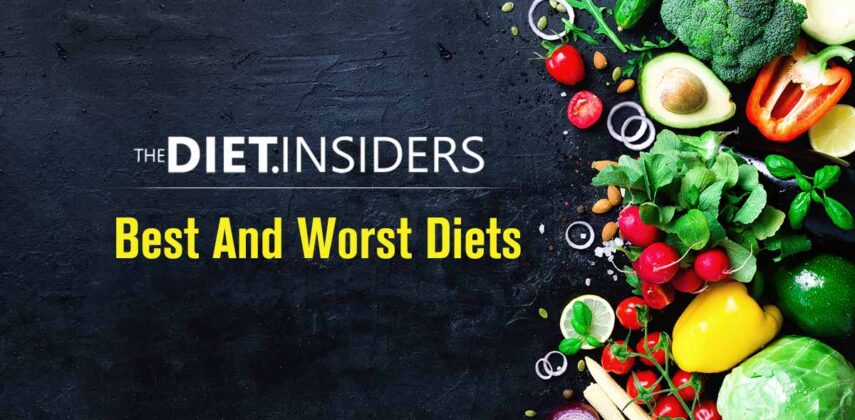The battle of the diets in 2020! According to US News and World Report’s, the Mediterranean Diet has taken the number one spot for best diets in 2020. 35 diets were evaluated and ranked based on safety, weight-loss effectiveness, ease to follow, and whether or not the diet was protective against diabetes and heart disease.
Diets will come and go! There are a lot of frustrated dieters trying to find the next or best diet to lose weight. Truth be told, most people will say dieting is difficult because there can be a plethora of rules to follow.
On the other hand, some people need to be able to follow specific diets because of diagnosed conditions, which is why It is important to understand the key difference between clinically-based diets and popular diets perpetuated in the media.
A clinical diet or a therapeutic diet is a meal plan that controls the intake of certain foods or nutrients. It is part of the treatment of a medical condition and is normally prescribed by a physician and planned by a dietitian.
A therapeutic diet is usually a modification of a regular diet and is modified or tailored to fit the nutrition needs of a particular person with a certain condition[1]. An example of a therapeutic diet can be a texture modification, a tube feeding, or a diet that needs to be low in fiber, or high in fat. These diets are usually monitored by a doctor and a dietitian.
Let’s be clear if it’s trendy to eat a plant-based diet then count me in! However, It’s important to remember that following a lifestyle rather than a strict diet is better for long term success of a particular diet unless told otherwise by a physician.
Here is a list of the Best and Worst Diets of 2020 Ranked According to US News and World Report’s[2]:
- Mediterranean Diet
- DASH Diet
- The Flexitarian Diet
- Weight Watchers (WW)
- Mayo Clinic Diet
- MIND Diet
- Volumetrics Diet
- TLC Diet
- Paleo Diet
- Nordic Diet
- Vegetarian Diet
- The Fertility Diet
- Jenny Craig Diet
- Asian Diet
- Weil’s Anti-Inflammatory tie with Nutritarian Diet
- Vegan Diet
- The Engine 2 Diet tie with the South Beach Diet
- Biggest Loser Diet
- Glycemic-Index Diet
- Nutrisystem Diet
- Zone Diet
- Macrobiotic Diet
- SlimFast Diet
- HMR Program
- Optavia Diet
- Alkaline Diet
- The Fast Diet
- Ornish Diet
- Raw Food Diet
- Atkins Diet
- Whole 30 Diet
- Keto Diet
- Dukan Diet
Have you heard of some of these diets? Chances are, you have probably heard of the majority of these diets.
Perhaps you may have heard of some of these diets because they are shown on mainstream and social media every day and the desired goal of losing weight. One of the last diets on the list is called the ketogenic diet, also known as “the keto diet.”
This diet has gained popularity over the last two years. Some of these diets have been around for many years but have gained national attention through social media and depict a dramatic weight loss effect.
However, over the past couple of years, the keto diet has gained worldwide attention of people who are not diagnosed with epilepsy, but rather for people who want to lose weight.
Let’s see what the experts have to say about the best and worst diets for 2020.
The expert panelists who evaluated the best diets for 2020 are experts in diet, nutrition, obesity, food psychology, diabetes, and heart disease. They range from dietitians, doctors, professors, and psychologists.
They were asked to analyze each diet based on how easy it is to follow; its ability to produce short-term and long-term weight loss; its nutritional completeness; safety; and its potential for preventing and managing diabetes and heart disease.
The Best Diet of 2020 is the Mediterranean Diet
Many have heard of the Mediterranean Diet. This diet or lifestyle is generally seen in populations or countries bordering the Mediterranean Sea. Typically, these populations live longer and suffer less from chronic diseases, such as cancer and cardiovascular disease.
Incorporating physical activity, keeping your weight down, consuming high amounts of vegetables and nuts, and eating a diet low in red meat, sugar and saturated fat can decrease your chances of developing chronic diseases.
The Mediterranean Diet may offer a host of health benefits, including weight loss; heart and brain health; cancer prevention; and diabetes prevention and management. Research shows that when you follow the Mediterranean Diet, you could also keep that weight off while avoiding chronic disease[4].
The Worse Diet of 2020 is the Dukan Diet
The Dukan Diet is not as popular as some of the other diets we have seen in the media. The Dukan Diet is high-protein and low-carbohydrates. This diet is considered a diet devised by Pierre Dukan.
It is worth noting, that depending on your current health status, this diet may not be nutritionally sound and can carry risks to kidney and cardiovascular health. This diet was created based on the premise that counting calories were not the key to weight loss. This diet says protein is the key to weight loss[5].
When you take a look at the pros and cons of the Dukan diet, there are a lot of rules to follow and people who are on this diet could fall short of the nutrients that are needed. Most importantly, this diet could carry side effects not worth trying for some people.
Other Diets That Came in On Top
#2:The Dash Diet
This diet came in number 2 and tied with the Flexitarian Diet. The Dash Diet stands for Dietary Approaches to Stop Hypertension. This diet is usually heavily promoted by the National Heart, Lung, and Blood Institute to do exactly that[6].
The foods on this diet include fruits, veggies, whole grains, lean protein, and low-fat dairy, which are high in blood pressure-deflating nutrients like potassium, calcium, protein, and fiber. This diet discourages foods that are high in saturated fat, such as fatty meats, full-fat dairy foods, tropical oils, as well as sugar-sweetened beverages and sweets.
#3: The Flexitarian Diet
This diet that tied with the DASH Diet. The name was created by the marriage of two words: flexible and vegetarian. The term was coined more than a decade ago by Dawn Jackson in her 2009 book called, “The Flexitarian Diet: The Mostly Vegetarian Way to Lose Weight, Be Healthier, Prevent Disease and Add Years to Your Life.”
Jackson is a registered dietitian and says, you don’t have to eliminate meat completely to reap the health benefits associated with vegetarianism. She says you can be a vegetarian most of the time, but still, chow down on a burger or steak when the urge hits[7].
Does this sound like another diet/lifestyle we have been hearing in the media lately? Yes, you guessed correctly. This way of life is called a predominantly plant-based lifestyle. This is when people chose to eat a diet rich in whole grains, fruits, vegetables, nuts, and seeds and enjoy meat once in a while.
The good part about this lifestyle is that there are no strict rules. You can decide how often you want to incorporate meat into the diet. A good starting place maybe once a week.
The Bottom Line
If you are interested in trying one of the diets of 2020, it is important to take into consideration how easy the diet is to follow; its ability to produce short-term and long-term weight loss; its nutritional completeness; safety; and the potential for preventing and managing chronic disease.
It is also important to keep in mind that if you are choosing to go on a diet, it is recommended that you do your own research and speak to a doctor that can advise you based on your current health status.
For example, if you are currently a diabetic, suffering from heart or kidney disease, it may not be recommended that you try and extreme diet methods such as the Keto Diet or Dukan Diet.
These diets take extreme measures and may be detrimental to your health. It is always best to consult with proper health professionals who are familiar with the status of your current health.







 This article changed my life!
This article changed my life! This article was informative.
This article was informative. I have a medical question.
I have a medical question.
 This article contains incorrect information.
This article contains incorrect information. This article doesn’t have the information I’m looking for.
This article doesn’t have the information I’m looking for.